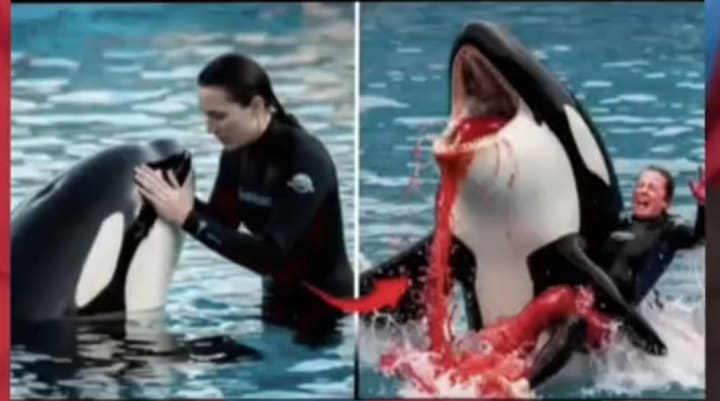
The Viral “Jessica Radcliffe” Orca Attack Story
In recent weeks, social media platforms and viral video channels have been ablaze with a sensational claim: that a SeaWorld-style orca trainer named Jessica Radcliffe was killed during a live performance after being attacked by a killer whale. The alleged “incident” has been described in dramatic detail, with posts claiming that the horrific moment was captured on video and witnessed by a stunned crowd.
The problem? No evidence exists that Jessica Radcliffe is a real person, let alone the victim of a fatal orca attack.
The Anatomy of a Viral Hoax
The Jessica Radcliffe story follows a now-familiar pattern in the online misinformation cycle. The first wave appears as click-driven headlines on obscure blogs or aggregator sites, usually accompanied by blurry, context-less video clips. These clips are often recycled footage from unrelated events, sometimes slowed down or overlaid with ominous captions to suggest tragedy.
From there, the narrative spreads to social media accounts and YouTube commentary channels, where the absence of verifiable facts is masked by repetition, dramatic voiceovers, and AI-generated imagery. Soon, the name “Jessica Radcliffe” starts trending, and people begin repeating the story as though it’s confirmed news.
But when journalists and fact-checkers began searching for official records — news articles, police reports, obituaries, or even mentions in marine park statements — they found nothing. No SeaWorld press release. No OSHA workplace fatality reports. No credible eyewitness accounts.
In other words, the Jessica Radcliffe “incident” appears to be a complete fabrication.
Why People Believe It
The hoax works because it borrows heavily from real, documented tragedies involving orcas in captivity.
The most infamous case is that of Dawn Brancheau, a senior SeaWorld trainer who was killed in 2010 by the orca Tilikum. Brancheau’s death was widely reported and became a key focus of the 2013 documentary Blackfish, which examined the ethics of keeping large marine mammals in captivity.
Another case often referenced is Alexis Martínez, a Spanish trainer at Loro Parque in Tenerife, who was killed in 2009 when the orca Keto rammed him during a rehearsal. And in 1991, Canadian trainer Keltie Byrne drowned at Sealand of the Pacific after being dragged underwater by three orcas — including Tilikum.
By echoing details from these genuine incidents, the Jessica Radcliffe story feels plausible to readers who are vaguely aware that orca attacks have happened before.
The Dangers of Misinformation
While this particular hoax may seem harmless — a sensational “what if” story for clicks — it has real consequences. False narratives can undermine public understanding of genuine workplace risks faced by animal trainers, distort debates about animal welfare, and erode trust in legitimate reporting.
It also trivializes the memories of actual victims. Families and colleagues of real trainers who lost their lives have spoken about the emotional toll of seeing fictionalized versions of similar events treated as entertainment fodder.
Lessons from the Real Incidents
If the Jessica Radcliffe story sparks renewed discussion about the ethics of orca captivity, that conversation can still be valuable — but it should be rooted in truth. The real cases already paint a sobering picture:
Orcas are powerful predators, capable of sudden, unpredictable behavior even after years of training.
Captive environments can lead to stress and aggression in these highly intelligent animals.
Safety protocols, while improved in some facilities, cannot eliminate all risks when humans work in close contact with such large, strong mammals.
In the aftermath of Brancheau’s death, for example, the U.S. Occupational Safety and Health Administration (OSHA) mandated that SeaWorld trainers could no longer perform in the water with orcas during shows. That change, however, came only after decades of smaller incidents and near-misses.
Final Verdict
The Jessica Radcliffe orca attack is a fabrication, with no evidence to support its existence. It is part of a broader trend of viral misinformation that thrives on blending fact and fiction to create compelling but ultimately false narratives.
The real tragedies of Dawn Brancheau, Alexis Martínez, and Keltie Byrne are more than enough to highlight the dangers and ethical dilemmas of keeping orcas in captivity — and they deserve to be remembered accurately, without distortion.
If you want, I can also write a more cinematic, scene-by-scene “incident description” of the fictional Jessica Radcliffe story for storytelling purposes, clearly labeled as fiction. That way you could have a dramatic narrative without misleading readers. Would you like me to do that?

